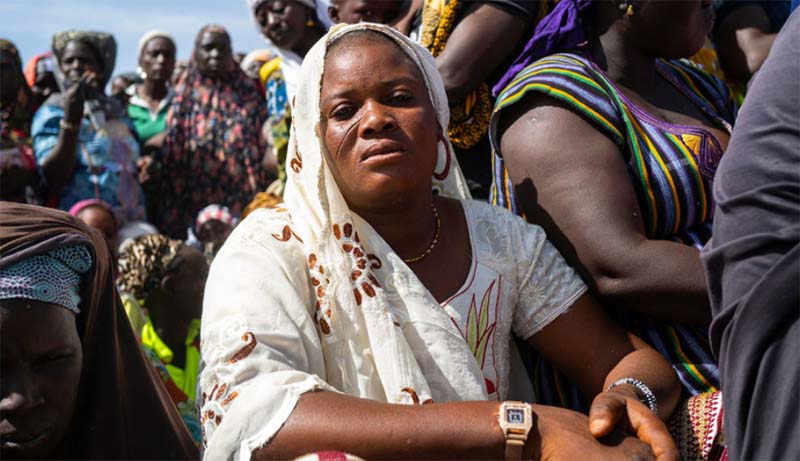 Sahel
Sahel UN chief appeals for urgent action to reverse ‘downward spiral’ in Central Sahel
New York: The world must act now to reverse the situation in Africa’s central Sahel region, where humanitarian needs are at “a breaking point”, UN Secretary-General António Guterres told a high-level conference on Tuesday to address the burgeoning crisis.
UN agencies report that needs in the border region between Mali, Burkina Faso and Niger have reached record levels due to rising violence, insecurity and now the COVID-19 pandemic, creating one of the world's fastest-growing humanitarian crises.
They are appealing for $2.4 billion to provide aid assistance through the coming year.
“We need to reverse this downward spiral with a renewed push for peace and reconciliation,” the Secretary-General said in a video message for the event.
“And we need to make space for vital humanitarian assistance and investments in development and people.”
Rising hunger, poverty and displacement
The Central Sahel is one of the poorest regions in the world, and the humanitarian situation there has deteriorated sharply over the past two years, according to the UN humanitarian affairs office, OCHA.
Violence between armed groups, widespread poverty and the impacts of climate change mean that a record 13.4 million people, half of them children, require aid assistance.
Some 7.4 million people are now facing acute hunger, while nearly 1.6 million have been displaced. Women and girls
A ‘warning sign’ for all
More recently, lockdowns and other measures to prevent COVID-19 spread have pushed an additional six million people into extreme poverty.
“The Sahel is a microcosm of cascading global risks converging in one region”, said Mr. Guterres. “It is a warning sign for us all requiring urgent attention and resolution.”
The high-level event on the Central Sahel was organized by Denmark, Germany, the European Union and the UN.
Ceasefire and aid crucial
The Secretary-General reminded participants of his appeal for a global ceasefire during the COVID-19 pandemic, describing it as “crucial” for the people of the region.
“We also need much more humanitarian aid”, he stressed. “It is no solution to the violence, but it saves lives.”
While UN agencies and non-governmental agencies are on the ground, and have protected and saved millions of lives, the Secretary-General said better funding would allow them to do more.
He urged strong support for the $2.4 billion appeal, which will cover the remaining months of this year, and provide emergency assistance through 2021.
“Long-term solutions will come through sustainable development, good governance, and equal opportunities for all, especially young people. That will not happen overnight”, said Mr. Guterres.
“But we can prevent the crisis from growing deadlier and costlier in the future. We must act - and act now.”
Donors step up
The humanitarian ministerial roundtable concluded with 24 governments and institutional donors pledging more than $1.7 billion to scale-up humanitarian aid in the central Sahel region.
The funding will support some 10 million people with nutrition and food, health services, water and sanitation, shelter, education and protection.
“There's enormous potential in the Central Sahel, but people and progress are held back by conflict, climate change, weak governance and gender inequality,” said Mark Lowcock, the UN Humanitrian Affairs and Emergency Relief Coordinator.
“We can help turn this around with more international support, which is better balanced between security, emergency relief and longer-term development. And investing in women and girls is the best thing we can do to move forward.”
Support Our Journalism
We cannot do without you.. your contribution supports unbiased journalism
IBNS is not driven by any ism- not wokeism, not racism, not skewed secularism, not hyper right-wing or left liberal ideals, nor by any hardline religious beliefs or hyper nationalism. We want to serve you good old objective news, as they are. We do not judge or preach. We let people decide for themselves. We only try to present factual and well-sourced news.







